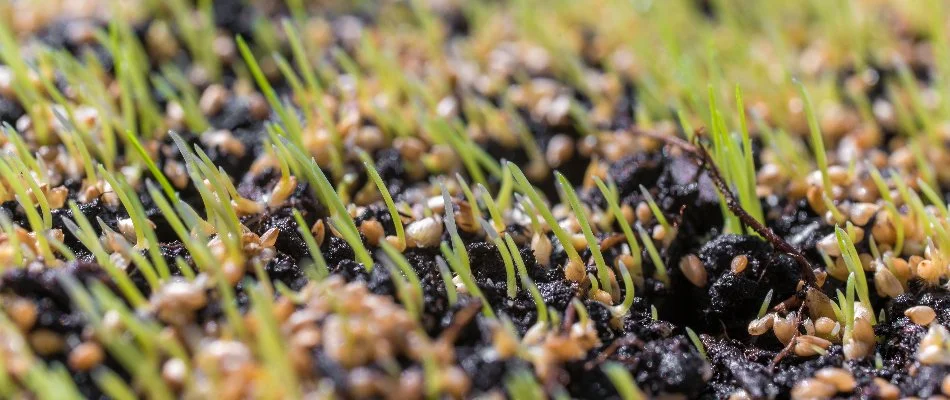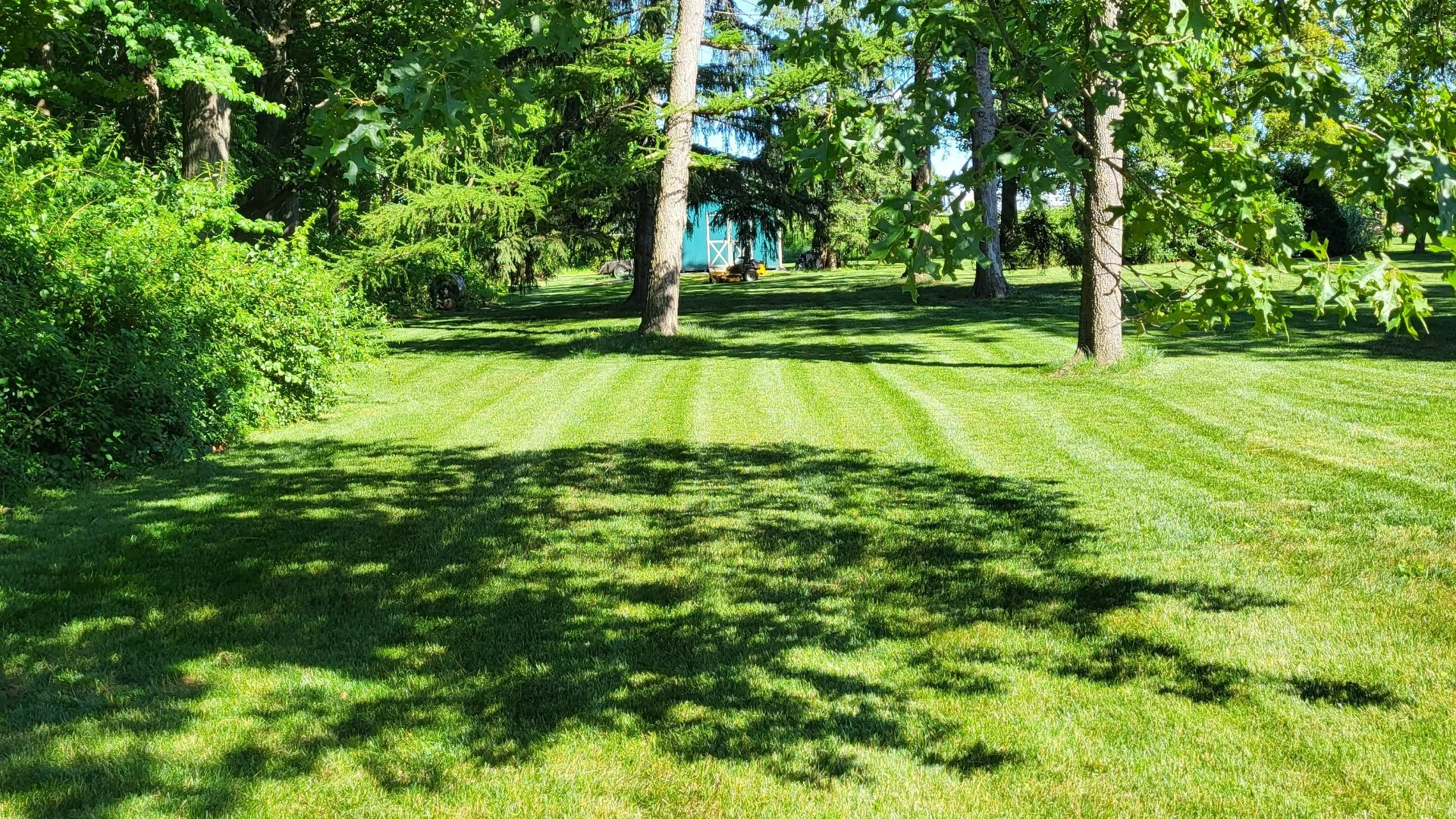To ensure your overseeding efforts pay off in Pennsylvania, a proper aftercare routine is essential. Follow a strict watering schedule for the first month after the overseeding service to ensure the soil is moist, which is crucial for helping the seeds establish roots. You'll also want to stay off the lawn and avoid mowing for 2-3 weeks to keep from stressing them out as they try to grow. Finally, fertilize your lawn after overseeding to provide the new seeds with the essential nutrients they need to grow. Following these aftercare tips will help you get the most out of your overseeding service and achieve a lush, healthy lawn.
Follow a strict watering schedule after overseeding to help with root development.

Overseeding is a powerful way to rejuvenate your thin, patchy lawn, but proper aftercare is essential for success, such as following a strict watering schedule. Sticking to a watering schedule will ensure the seeds have enough water to help establish strong roots. For the first two weeks, watering lightly but frequently is recommended, so you should aim for 2-4 times a day. This keeps the seeds moist without drowning them. In weeks 3-4, reduce the frequency to 1-2 times a day, but water more heavily to promote deeper root growth. After a month, you can return to a normal watering routine. This careful watering regimen will give your new grass the best chance to thrive, resulting in a lush, revitalized lawn.
Avoid mowing or walking on your lawn for 2-3 weeks after overseeding.
After overseeding, it is recommended to stay off the lawn and avoid mowing for at least 2-3 weeks. New grass seedlings are delicate and can easily be stressed by foot traffic or the weight of mowing equipment. Allowing the seeds to germinate undisturbed promotes stronger root development and overall growth. During this period, it's also important to keep pets off the lawn, as their activities can disrupt the seedlings. Once it's been 2-3 weeks, it can be mowed, but make sure to set the mower deck height to its highest setting and don't cut more than 1/3 off the top of the grass blades.
Fertilizing after overseeding will give the seeds a nutrient boost.
Fertilizing your lawn after overseeding is another crucial aspect of setting up the new grass seeds for success. This step provides the seeds with the essential nutrients they need to germinate and establish strong roots; it's important to use a fertilizer comprised of the correct amount of nitrogen, phosphorus, and potassium to ensure they receive the nutrients required to develop into healthy grass. Proper fertilization after overseeding can lead to quicker results, namely a thicker, healthier lawn!
Avoid using weed control products for a short while after overseeding, as they can hinder the growth of the new seeds.
Give us a call today to schedule our overseeding service!
At Green Grass Lawncare, Inc., our overseeding service is perfect for making your lawn lusher and thicker. Our team uses a high-quality seed blend consisting of fescue and ryegrass to yield grass that thrives in the climate in our area, and we'll also apply a starter fertilizer afterward to give them a nutrient boost. With us, you can trust that we'll fill in bare, patchy areas to help your lawn reach its full potential.
Our top-notch overseeding service is available as part of our Deluxe Lawn Care Program, which we offer to commercial and residential property owners, along with HOAs, in Telford, Souderton, Harleysville, Quakertown, Perkasie, PA, and nearby areas. Don't wait any longer—call us today at (215) 723-1034 to schedule your next overseeding service and watch your lawn transform before your eyes!



Comments (0)
Thanks for your comment!
Thanks for your feedback! Your comments have been successfully submitted! Please note, all comments require admin approval prior to display.
Error submitting comment!
There is a problem with your comment, please see below and try again.